These alums got game (jobs)
Two alumni made their way in the video game industry through liberal arts
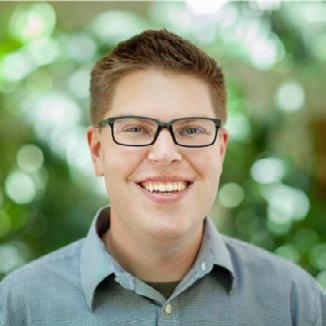
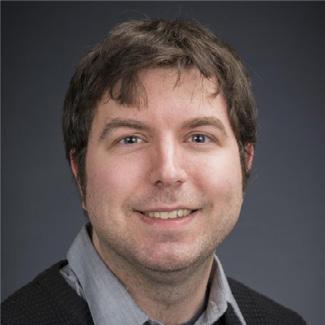

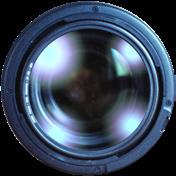
Pg. 4

College of Letters & Science INFOCUS
Vol. 13, No. 4
April 2023,
Contents
Feature Stories


UWM physicists help make new imaging tools
Alums take liberal arts route to gaming industry
Translation alum uses his skills at Nintendo job
Urban studies alum programs at PlayStation
UWM’s Holocaust certificate shapes students
WUWM names new general manager
UWM scientists scientific imaging
What you need to know:
• UWM scientists are part of an effort to make a more efficient version of tools called compact X-ray Free Electron Lasers (CXFELs)
• CXFELs take “snapshots” of molecules to track the motions of atoms. Viewed together, these “pictures” show how molecular structures can change.
Columns
Upcoming Events
Film Festival schedules
In the Media
Alumni Accomplishments
Laurels and Accolades
People in Print
Published the first tuesday of each month by the college of letters and science at the university of Wisconsin-milWaukee.
contact us at let-sci@uwm.edu
l&s acting dean: nigel rothfels
In Focus editor: deanna alba
Find us at uWMLetsci
UWM is a longtime partner on a grant from the National Science Foundation that supports the development of the next generation of X-ray Free Electron Lasers (XFELs) –novel instruments used to unmask phenomena that have never before been observed.
Since 2009, XFELs have enabled scientists to examine how molecules in the human body and in a variety of materials change over split-second intervals, important knowledge to help understand human health and medicine. The technology will also help advance renewable energy research, quantum technologies and semiconductor manufacturing.
But, because of the XFEL’s kilometer-long size and billiondollar construction costs, the technology is available at only five facilities globally. The goal of this NSF grant, amounting to $90.8 million, is to build a compact XFEL, or CXFEL, that can accomplish the same tasks but in the space of a single room. The funding was awarded to Arizona State University and 11 collaborating institutions, including UWM.
CXFELs will make the state-of-the-art tool more accessible for use by universities, hospitals and semiconductor manufacturing facilities.
UWM’s role
Many questions in science increasingly focus on understanding changes that happen at the atomic scale that cannot be observed with optical methods, said Abbas Ourmazd, UWM distinguished professor of physics.
To understand UWM’s part of the project, funded at nearly $3 million, it helps to know more about how the technology works:
The XFEL shoots short bursts of X-rays at samples, taking a “snapshot” of a molecule every quadrillionth of a second or less. These pulses are short enough to directly track the motions of atoms.
2 • IN FOCUS •
April, 2023
p.2 p.4 p.4 p.4 p.8 p.10 p.11 p.12 p.13 p.14 p.14 p.16
effort
Then, data from an ensemble of millions of snapshots over time can be mathematically reconstructed into threedimensional movies of molecular structural changes.
To do this requires powerful machine-learning algorithms developed by a UWM team led by Ourmazd. The machine-learning approach the team developed can extract up to 100 times more information from highly incomplete and noisy XFEL data.

The UWM team includes Professor Peter Schwander, Senior Scientist Russell Fung and Assistant Professor Ahmad Hosseinizadeh.



kind
In addition to analyzing the collected data, the role of the UWM team includes automating and optimizing data collection at the new facility. The project is the culmination of over a decade of collaboration between ASU and UWM, Ourmazd said.
UWM scientists from both the Ourmazd lab and the lab of UWM Professor Marius Schmidt have used XFEL imaging to answer biological questions, such as how proteins accomplish biological tasks inside the body, how photosensitive proteins respond to light, and how a virus infects a healthy cell.
 By Laura Otto, University Relations
By Laura Otto, University Relations
3 College of Letters & Science • UW–Milwaukee •
imaging
to contribute to first-of-its
Pictured above is Distinguished Professor of Physics Abbas Ourmazd. From left to right are Professor Peter Schwander, Senior Scientist Russell Fung, and Assistant Professor Ahmad Hosseinizadeh. Together they comprise the te at UWM that supports the development of next generation X-ray Free Electron Lasers (XFELs).
Liberal arts in tech: Two alums take video game industry
Computer science, software engineering, or animation – these are some of the most common majors for those wanting to work in the video game industry.
But two UWM alumni say it was their degrees in liberal arts that helped them build their careers with two of the biggest companies in the field. Ben Schroeder, a software engineer for PlayStation, and Timothy MacKenzie, a localization specialist at Nintendo, both attended UWM and graduated with majors in the humanities and social sciences. Each of them credits their education and skills in critical and creative thinking for their success in what is traditionally a tech-heavy vocation.
“I think (a liberal arts education) is attractive to employers because it shows a well-roundedness and empathy,” Schroeder said. “Not to downplay the computer science curriculum at all, but those tend to be skills that can be
learned well into one’s career, whereas I think a lot of the liberal arts skills like critical thinking, seeing the big picture, and understanding the nuances of different ideas of perspectives, are important to learn early on.”
Schroeder majored in urban studies and earned a certificate in Geographic Information Systems (GIS). GIS involves attaching data to points on a map – the types of fauna in a particular natural area, for example, or when various equipment was last serviced at General Mitchell Airport. For Schroeder, those classes were where he first began to realize that the liberal arts and STEM weren’t entirely separate disciplines.
“You can combine the liberal arts and social sciences side with technology,” he said. “That’s an intersection I’m really interested in and it got me into the tech sphere.”
Global company, local expert: Alum translates Nintendo games for America
What you need to know:
• Timothy MacKenzie is a two-time UWM alum who earned his Master’s in Language, Literature, and Translation (Japaneseto-English).

• He is a localization expert for Nintendo, where he translates Japanese video game dialogue and other text into English.
Timothy MacKenzie and his siblings had to compete with their dad for time on their old Nintendo console as they were growing up.
“My dad was the one who brought home ‘Super Mario Brothers’ and ‘Zelda,’ and he insisted that he had to be the first to complete them, to make sure they were ‘okay’ to play,” MacKenzie recalled. “He eventually had to change his rule because he realized we were a lot better than he was. I think he died 200 times in Zelda.”
As much as he loved Nintendo, MacKenzie never realized that his gaming system came from so far away. He grew up in Minnesota in a town of just 600 people. Then, one day, an exchange teacher visited his elementary school and taught his class about Japan and its culture. MacKenzie still remembers how she showed the class the Miyazaki film “My Neighbor Totoro.”
To this day, it is one of his favorite movies.
“She also told me that I a lot of things I already liked were from Japan. I liked Nintendo games,” he said. “When she told me that, it blew my child mind.”
4 • IN FOCUS • March, 2023
Continued on Page 6
Timothy MacKenzie
MacKenzie’s job is less technical but no less important. As a localization specialist, he works to make Nintendo’s games accessible to an American audience. Nintendo, like Sony (which owns the PlayStation brand), is a Japanese company and its products, games, manuals, and more are produced in Japanese.
MacKenzie majored in Journalism, Advertising, and Media Studies at UWM and minored in Japanese. Soon after, he completed his Master’s in Language, Literature, and Translation, specializing in Japanese-to-English translation. He uses his skills now to not only translate Japanese game dialogue into English, but also to help smooth out cultural nuances that might be unfamiliar for American audiences.
“There is a lot of push-and-pull. Can we do this; can we adapt that? Do we stay closer to the original text or go
in our own direction? There’s a lot of discussion, but it’s really rewarding to do,” MacKenzie explained.
He relies heavily on his understanding of both Japanese and American culture to remain close to the original text while still getting the meaning across to an Englishspeaking audience. Those are skills that he learned in his work at UWM. A liberal arts education has been invaluable, just as it was for Schroeder.
“If you’re looking to get into a technical field, on the surface, it might not seem like a liberal arts or social science education would be conducive to that,” Schroeder said, “but I think you’re stacking the odds in your favor if you choose to pursue it.”
Learn more about Schroeder, MacKenzie, and their jobs in the articles below.
From GIS to video game software: Alum’s dream comes true at PlayStation
What you need to know:
• Ben Schroeder majored in Urban Studies and became interested in computers through his GIS certificate.

• He now works a software engineer at PlayStation, where he works on the company’s mobile app and platforms.
Open up the PlayStation app on your phone and you’ll find a list of your friends currently online. Small avatars will be listed next to their names, alongside an icon showing which game they’re playing.
Ben Schroeder is particularly proud of that one.
“That (screen) was my first major contribution since starting work at PlayStation,” he said. “That was really cool to be part of something that millions of people are going to see when they open up their phones.”
Schroeder is about to mark one year as a software engineer at PlayStation, and he’s contributed to several projects, like the app’s friend list, during his time at the company’s California offices. Software engineers are workhorses at PlayStation. Some work on developing
video games while others work with the PlayStation console itself. Still others, like Schroeder, work on PlayStation’s mobile platforms.
5 College of Letters & Science • UW–Milwaukee • Continued on Page 6 take an unconventional route to the
Ben Schroeder
Alum at Nintendo
Continued from Page 5
“This came from Japan, and someone had to put it into English. That expanded the world for me.”
Today, MacKenzie is one of the people who puts Nintendo games into English. As a localization specialist, he is responsible for translating Japanese text from video and mobile games – either narrative text or user interface text – and polishing it so that it reads smoothly to American audiences. That means replacing Japanese idioms with American sayings, for example, or even just ensuring correct time zones.
“But also, it could be more narrative-focused, looking at characterization or the story. We have the narrative text and dialogue for a role-playing game, or things like that. We look at, what’s the right kind of voice and characterization for our market?” MacKenzie said.
For example, he did work on the mobile game “Animal Crossing: Pocket Camp.” One of the characters in the game, Shino, has a Shinto shrine.
“We had a push from some people – should we just write this out and not include it, because some people might not understand it here?” MacKenzie said. “I thought, even if they don’t, it’s best to include it. It’s still in the game visually, and I think people would appreciate learning about other cultures. I think that’s something that really valuable.”
It’s a different approach than other localization specialists have taken in the past. In the 1980s and 90s, MacKenzie said translators tended to “sand off” any aspect of foreign culture by substituting American foods in place of Japanese cuisine, for example, or changing foreign character names to American monikers.
But that method robs audiences of the full impact of the movies, games, and music they’re consuming, he argues. The internet has opened up the world and allowed people a glimpse into different cultures, from Japanese anime and video games to Korean cinema and music to Indian dance and philosophies.

“It just makes sense to me to be as respectful as possible with these sorts of things,” he said. “We should just be celebrating the things that they have to offer.”
MacKenzie has a deep appreciation of Japanese culture. He attended UWM specifically because it had a strong Japanese program. After earning his Master’s degree, he began working at Right Stuf Anime doing subtitles for Japanese movies. Later, he took a marketing job at UWParkside before landing at Nintendo.
What’s it like to work at the company that had such an impact on his childhood?
“It’s very surreal. It still hasn’t really settled in. There are times when it doesn’t feel like work. It’s surprising that I’m getting paid to do this,” MacKenzie said. “It’s been a wonderful experience and I have a very strong appreciation for my coworkers and my work environment. I feel heard and cared for.”
He wants everyone to enjoy their experience with Nintendo, just like he has – no matter where in the world they are.
By Sarah Vickery, College of Letters & Science
6 • IN
• April, 2023
FOCUS
Alum at PlayStation
Continued from Page 5
“My division is focused on how we can make PlayStation sort of the one-stop-shop platform for all of your gaming life,” Schroeder said. “How do you connect with friends? How do we keep you engaged? How do we keep you in tune with the latest goings-on of games you play or games you might be interested in?”
Projects are completed in two-week sprints, he said, with project managers working closely with engineers to implement new ideas with an eye toward user experience and marketability.
But every now and then, Schroeder and the other engineers get to spread their creative wings and work on pet projects. PlayStation periodically holds “Hackathons,” where all meetings and regular work are cancelled for an entire day, and sometimes longer. Teams of engineers collaborate to build an entirely new project and show off their work at the end of the event. A surprising number of PlayStation features have been born during a Hackathon, Schroeder said.
Working alongside other engineers at PlayStation is something of a dream come true for Schroeder. The Green Bay native grew up gaming on the PlayStation console. He has especially fond memories of games like “Final Fantasy VII,” and he’s currently playing through “God of War: Ragnarok.” Working at the company that has made some of his favorite games has given him a new appreciation for the process and creativity needed to make them, he said.
Schroeder has some of that creativity himself, and he credits his UWM education. He’s always been interested in maps and geography, and the Urban Studies program,
along with the GIS certificate, seemed to be the perfect fit. As he learned more about GIS technology, he applied his new-found knowledge at a job in the College of Letters & Sciences’ IT office. After graduation, Schroeder landed a job at Esri, a company that makes GIS software, before he moved to Olo, a company that makes management software for restaurants.
Then, one day, Schroeder was applying to video companies on a whim.
“One of them was PlayStation, which is a brand that I think so many people including myself kind of grew up with and you know it’s been kind of a fixture throughout our lives. And when they called me back and said, ‘There’s a place for you here,” that felt like the logical culmination of everything I’ve been working towards,” he said.

One thing that made him stand out from other candidates was his study abroad experience during his time at UWM. Schroeder spent a semester in Frankfurt, Germany, and heartily encourages current students to do the same.
“I think, especially when you’re working with a global company, in what is now like a more globalized world than ever, that just having that one semester abroad on your resume shows an employer that you have empathy, that you can communicate in an intercultural kind of context, and that you’re mature and ambitious, a self-starter,” he said. “I think the best return on investment among many that I had at UWM was my semester abroad.”
So, if you’re thinking of a career in the gaming industry, consider a liberal arts degree.
By Sarah Vickery, College of Letters & Science
7 College of Letters & Science • UW–Milwaukee •
UWM’s Holocaust, Genocide, and Human students to make the world a better
What you need to know:
• UWM offers a certificate in Holocaust, Genocide, and Human Rights Studies that teaches history, philosophy, film, literature, politics, and more.
• The certificate prepares students for work in education, advocacy, and other areas to improve the world
• Genocide and persecution are still problems that persist, though the Holocaust ended almost 80 years ago.
April 17, 2023 marks Yom HaShoah, or Holocaust Remembrance Day. The Holocaust, perpetrated by the Nazi regime in Germany from 193345, claimed the lives of six million Jewish people.
This year, Rachel Baum would like you to remember something in particular:
“Every single person has a story that we get to hear if we’re lucky,” she said. “There are so many stories that we’ll never get to hear. The number of Jews killed is enormous, are big, but it’s important to see that it was six million individual human lives.”
It’s one of the most important lessons that UWM’s certificate in Holocaust, Genocide, and Human Rights Studies tries to teach.
UWM began offering the certificate in 2019. Housed in the Sam and Helen Stahl Center for Jewish Studies, the certificate asks students to take a variety of courses focusing on not only the history of the Holocaust, but also on global politics and human rights, philosophy and ethics, and slavery and African American politics and history.

The certificate is designed to prepare students for practical careers, such as museum curation, social work, or nonprofit work, but it’s also meant to give students the perspective and tools to make a change in the world around them.
“Even though the Holocaust ended in 1945, these issues are still very much with us,” noted Baum, who is the deputy director of the Stahl Center. “The world is wrestling with issues of discrimination and hatred, and unfortunately, still genocide. We really want to prepare students to intervene in that world.”
The components
Jewish people have been the target of violence throughout history, but the Holocaust marked the largest and most systemic, organized effort to eradicate that population. The stories of ghettos, gas chambers, and concentration camps are taught in history classes across the country. Six million Jews were killed in the span of 12 years.
But the certificate’s classes ask students to look beyond the Holocaust.
“(I noticed) students came in with the thought this was a terrible event, and ... it ended in 1945,” Baum noted.
But in reality, added Joel Berkowitz, “These issues still come up. The Holocaust is unique but also connected to other genocides. We need to understand the phenomenon if we’re ever going to keep it from happening again.”
Berkowitz is the director of the Stahl Center, and he, Baum, and their advisory committee designed the

8 • IN FOCUS • April, 2023
Rachel Baum
Joel Berkowitz
Human Rights certificate teaches
place
certificate to look at the Holocaust and other genocides from many angles, including through literature, film, and social science. The variety is meant to give students multiple perspectives and insights into learning the driving forces and the staggering costs of the Holocaust and other genocides.
And there have been a multitude of genocides throughout history, and many in recent memory in Rwanda, Bosnia, and Myanmar, to name a few. Even today, experts have debated labeling Russia’s invasion of Ukraine or China’s treatment of Uighur Muslims as genocide. Because this type of persecution and prejudice is still happening, Berkowitz says the certificate strives to teach student the patterns that perpetrators seem to use to foment fear and hatred against a particular group.

“One of the things we see in these kinds of courses is how language is often perverted and distorted in very deliberate ways,” he pointed out. “For example, (Russian president Vladimir) Putin has very deliberately co-opted historical ideas and twisted them in that the pretext of the ‘special operation’ was to de-nazify Ukraine. In a very powerful country where the state runs the media, from what I understand, it’s been largely accepted by the Russian people because that’s what they’re hearing from all of their broadcasters relentlessly.”
Pushing back against extremism language and the patterns that precede persecution is where the ‘human rights’ portion of the certificate comes in. The certificate includes a number of philosophy courses to choose from, each asking students some hard questions: Are there inviolable human rights? Must
they be codified or are they understood? How should our understanding of human rights affect laws and public policy?
By asking students these big questions, Baum and Berkowitz are preparing them to think critically and engage thoughtfully in the situations they might encounter beyond the classroom.
Combatting antisemitism and prejudice
Those skills are increasingly important. As Chris Nuzum can attest, prejudice is alive and well in America today. He is majoring in Jewish Studies and working towards the Holocaust, Genocide, and Human Rights Studies certificate. As a Jewish person who is also a veteran and queer, he is no stranger to prejudice.
“There is so much antisemitism right now. It seems there is an agenda targeting minorities and creating a frightening ‘other’ – frightening Jews and frightening Chinese and frightening Mexicans coming over the border, without really understanding what is
happening,” he said. “It’s something that I’ve grown up with and spent the bulk of my life absorbing. I’m at a place in my life where I’m no longer willing to accept it. … It is personal.”
That’s why his experiences taking classes within the certificate have been so impactful. He says that he has enjoyed all of his classes, and particularly the course “Representing the Holocaust in Words and Images.” The class was balanced with the stories of survivors, something that Nuzum felt gave an uplifting note to his studies.
The classes are challenging - not only academically, but emotionally as well. Nuzum describes the imagery as “crushing,” but smiled as he recounted how Baum often sends her students pictures of baby hedgehogs to help them de-stress after a grueling lesson.
Continued on Page 10
9 College of Letters & Science • UW–Milwaukee •
better
The Holocaust Memorial in Berlin honors victims of the Nazi regime. Photo from the Holocaust Education in Ireland website.
Holocaust Studies certificate
Continued from Page 9
Sometimes she assigns homework: Step away from your books and do something lifeaffirming.
Baum, in turn, said she has been impressed by the sensitivity of her students.
“Some of them have talked openly about their own trauma ... but also, they just have such deep insight,” she said.
Holocaust education
This certificate comes at an especially crucial time for American Holocaust education. A recent survey by the Claims Conference revealed that over two-thirds of Millennials and members of Gen Z know very little about the Holocaust, with one in 10 reporting that they had never heard the term before.
Baum and Berkowitz have noticed the trend, though Baum is proud that Wisconsin ranks among the best-educated states about the Holocaust. The solution, they said, is not only programs like the Holocaust, Genocide, and Human Rights Studies certificate, but also building community partnerships and increasing opportunities for students to learn about the material. For example, Berkowitz said, UWM’s Stahl Center for Jewish Studies works closely with the Nathan & Esther Pelz Holocaust Education Resource Center - Baum sits on the organizations Board of Directors - and UWM instructors take students to visit Jewish Museum Milwaukee.
It’s especially important because Holocaust survivors are growing older and passing away. Someday soon, no one will be left to tell their personal stories.
Baum and Berkowitz hope you remember those – and the untold stories – this Holocaust Remembrance Day.
By Sarah Vickery, College of Letters & Science
WUWM announces David Lee as new general manager

David Lee has been appointed the new director and general manager of WUWM 89.7 FM – Milwaukee’s NPR. He joins WUWM as the station and the NPR Network ecosystem continue their important work to leverage longstanding strengths while exploring innovative ways to reach new audiences. Lee succeeds John Hess, who had served as general manager of WUWM since 2020.
Lee is well-known in Milwaukee for his work in the nonprofit sector. He comes to WUWM from The Ascension Wisconsin Foundation, where he served as chief philanthropy officer, leading philanthropic efforts for Milwaukee’s safety net hospital system.
Prior to his role at Ascension, Lee was the inaugural chief executive officer at Imagine MKE, where he helped harness the power of Milwaukee’s arts and culture community to advocate for a more thriving and vibrant region. Before Imagine MKE, Lee was the founding executive director of Feeding Wisconsin, where he helped grow Wisconsin’s statewide collaboration of regional food banks.
As WUWM’s general manager, Lee will provide leadership and vision for a public radio station that delivers local and national news coverage and cultural programming to 102,000 listeners weekly in southeastern Wisconsin. WUWM is a listener-funded radio station licensed to the University of Wisconsin System Board of Regents and operated by the University of WisconsinMilwaukee College of Letters & Science.
“We are excited to have David take the lead as general manager of WUWM,” said Nigel Rothfels, acting dean of the College of Letters & Science. “His extraordinary background in Wisconsin’s nonprofit sector, his experience in focusing resources on the needs of vulnerable communities, and his widely recognized skills in developing dynamic and collaborative work environments will be critical to the ongoing success of WUWM. David is keenly aware of the roles that both UWM and WUWM play in Milwaukee, and I believe he will be a visionary next leader of Milwaukee’s NPR affiliate.”
Lee began his tenure as general manager on March 27.
By John Schumacher, University Relations
10 • IN FOCUS • April, 2023
David Lee
Upcoming Events
Recurring April Events

The French Table. 1-2 p.m. Curtin 766. Practice French conversational skills. All levels welcome. Occurs many Wednesdays and Thursdays. Check our online calendar.
Planetarium Show: Spring Stars. 7-8 p.m. Manfred Olson Planetarium. Explore spring constellations in the night sky and hear their stories, such as the feats of Hercules and the tale of Leo. Not recommended for children under 4. Tickets are $6 for the public, $5 for UWM students. Shows occur April 7, 14, 21, and 28.
Negotiating Authenticity: Reproducing the Past for the Present and Open Parameters – late nineteenth and early twentieth century’s Chinese calligraphy and painting. Emile H. Mathis Art Gallery. Explore how reproductions connect us to the past. The exhibitons opening night is April 13 at 5 p.m. with a gallery talk by the two curators. Exhibits run normal gallery hours MondayThursday, 10 a.m.-4 p.m. through May 11.
Science Bag - see page 14
April 6
Author Craft Talk: Craig Santos Perez. 3-4 p.m. Curtin 175. Perez is the author of six books of poetry and editor of other works.
Author Reading: Craig Santos Perez. 7 p.m. Curtin 175. Perez reads from his works.
April 7
Creative Writing Graduate Student-Faculty Reading: United We Read. 7-8:30 p.m. Sugar Maple, 441 E. Lincoln Ave., Milwaukee. Readers include Seth Copeland, Korey Hurni, Camilla J. Lee, Shuara Vohra, and Claire Davis.

April 11
JAMS Internship and Networking Fair. 10 a.m.-2 p.m. Union Ballroom. Meet with more than 20 employers including the Milwaukee Brewers, TMJ4, Milwaukee Journal Sentinel, and Good Karma Brands.
April 12
Il Circolo Italiano – Easter, Italian-style. 4:30-5:30 p.m. Curtin 766. No knowledge of Italian is required.
April 14
Arboreal Humanities: A Roundtable Discussion. 3:30-7 p.m. Curtin 175. Discussion and presentations are followed by a reception and community art project in the Center for 21st Century Studies. Featuring Richard Grusin (UWM English), Meg Wilson (UW-Madison), and Mishiikenh Vernon Altiman (UWM Electa Quinney Institute).
HARPY (Honors Association for Research and Presentation) Movie Night. 7-9 p.m. Honors House 195. All UWM students are invited to watch “Fight Club.” FREE.
April 18
Women’s & Gender Studies Lunch and Learn: Geographies of Risk, Responsibility, and Resistance in the Politics of Infant Mortality in Milwaukee. 11:30 a.m.-12:30 p.m. Curtin 535B. Presented by Kristin Sziarto, UWM.
Government Careers – A Panel Discussion with Professionals. 5-7 p.m. Mitchell 191. Panelists include Susan Falatko (U.S. State Department), Koreen Grube (U.S. Commercial Services), and David Abundis (Peace Corps). This event is FREE. Register here.
Folk-arts for peace: HemisFair ’68 and the Cultural Olympics in México’s 1968 Olympiad during the Global Cold War. 6-7 p.m. Curtin 175. Dr. Deborah Dorotinsky Alperstein, Instituto de Investigaciones Estéticas of the Universidad Autónoma de México, presents. This lecture will center on folk art (handcraft / arte-popular) as a cultural agent during the Global Cold War in 1968.
April 20
Nourishing Trust: Trust in Action. 1-2:30 p.m. Online A conversation about how trust operates in current food and land justice efforts. Featuring Linda Black Elk (United Tribes Technical College), Joseph Onalik (Memorial University), and Anton Seals, Jr. (Grow Greater Englewood). FREE and open to the public.
April 21
Quilting Bee. 10 a.m.-12:30 p.m., in the Women’s Resource Center (Student Union EG37) and 1-4 p.m., in the Golda Meir Library near the circulation desk. Learn about quilting by contributing a stitch to finish the backing of a quilt. Featuring artists Heidi Parkes and Molly Hassler. No experience necessary; materials provided.
11 College of Letters & Science • UW–Milwaukee •
Sun Mon Tue Wed Thu Fri Sat 1 2 3 4 5 6 7 8 9 10 11 12 13 14 15 16 17 18 19 20 21 22 23 24 25 26 27 28 29 30
April 2023
UWM hosts Latin American and Italian film series in April
Join the Center for Latin American and Caribbean Studies (CLACS) for the 44th annual Latin American Film Series!
The Latin American Film Series (April 14-20), organized by CLACS with support from Student Involvement, the Union Cinema, and an extensive list of campus cosponsors, features recent narrative and documentary films from throughout the region. Including both in-person and virtual screenings, the series is free and open to the public.
All films are in their original language with English subtitles. The full schedule and registration for the streaming titles can be found at the LAFS website
Schedule
In-person (UWM Union Cinema)
Friday, April 14
7 p.m. - Cadejo blanco (Guatemala, 2021)
Saturday, April 15
5 p.m. - Un mundo para Julius (Peru, 2021) (With guest, Director Rossana Díaz Costa)
8 p.m. - Omara (Cuba, 2021) (With guest, Executive Producer Dana Kuznetzkoff)
Thursday, April 20
7 p.m. - My Imaginary Country (Chile, 2022)
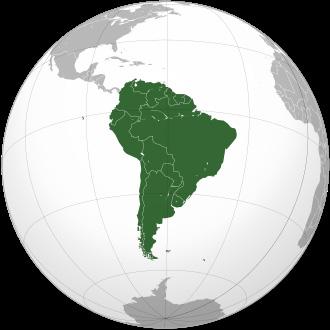
Virtual (available for streaming April 14-20)
A Bruddah’s Mind (Brazil 2020)
Miriam Lies (Spain/Dominican Republic, 2018)
Mute Fire (Colombia, 2020)
The Dog Who Wouldn’t Be Quiet (Argentina, 2020)
Nudo Mixteco (Mexico, 2021)
Italian Film Festival USA returns to UWM from April 28-30! Join the Department of Global Studies’ Italian program and the festival’s generous sponsors to view a variety of Italian films spanning drama, comedy, documentary, and more.
All films are free and open to the public at the UWM Union Cinema. All films are shown in their original langauge with English subtitles. For a complete schedule and a synopsis of each film, visit the Festival’s website
Schedule
Friday, April 28
7 p.m. - Il Campione (The Champion)
9 p.m. - Paradise
Saturday, April 29
3:30 p.m. - la Passione di Anna Magnani (The Passion of Anna Magnani)
5 p.m. - il Testimone Invisibile (The Invisible Witness)
7 p.m. - Ma Cosa Ci Dice il Cervello (Don’t Stop Me Now)

9 p.m. Nevia
Sunday, April 30
3 p.m. - Bene Ma Non Benissimo (Well, But Not Very Well)
5 p.m. - Domani e un Altro Giorno (Tomorrow’s a New Day)
7 p.m. - Aspromonte (Land of the Forgotten)
12 • IN FOCUS • April, 2023
In the Media and Around the Community

Bart Adrian (Mathematical Sciences) was a long-time television meteorologist before he came to UWM. He spoke about his career journey on WTMJ Radio
IFLScience shared the story of how Bettina Arnold (Anthropology) and her team recreated an Iron Age brew after uncovering remains of an ancient beverage in a cauldron during an archaeological dig.
Tina, Mafia Soldier is a novel exploring gender identity against the backdrop of the Italian mafia. Robin Pickering-Iazzi (Italian) translated the novel, which was highlighted in Milwaukee Magazine.
Immediately after college, Audrey Posten (‘13, BA History and Journalism, Advertising, and Media Studies) became the editor-in-chief of a small daily newspaper in McGregor, Iowa. Guttenberg Press published an article detailing her career.
Jennifer Johung (Art History) moderated a panel on “Contemporary Art/ Altered Climates” at Marquette University in March. Panelists included artist Tomás Saraceno and Marquette University professor Dr. Somesh Roy.
Marc Levine (emeritus History) remarked on Milwaukee’s economic growth in a Milwaukee Journal Sentinel article.
WUWM Radio highlighted the UWM Planetarium’s February programming in honor of Black History Month which explored culture and astronomy “Under African Skies.”
Paru Shah (Political Science) explained to TMJ4 News the significance of Wisconsin as a battleground state in regards to the upcoming State Supreme Court election and the Republican National Convention.
Why does Illinois celebrate Casimir Pulaski Day much more than Wisconsin’s Polish contingent? Donald Pienkos (emeritus Political Science) explained some of the reasons to Milwaukee Magazine.
For insight into how cannabis use effects the developing teenager’s brain, WBEZ Radio turned to several researchers, including Krista Lisdahl (Psychology). The article was reprinted in the Chicago Sun-Times
The backlog of open records requests at the Wisconsin Department of Justice highlights the need for adequate government resources, Jonathan Anderson (‘09, BA Journalism, Advertising, and Media Studies; ‘13, MA Media Studies) said in the Wausau Daily Herald.
Pamela E. Harris (Mathematical Sciences) interviewed undergraduate Stephen Lasinis (Applied Math and Computer Science) about LaTeX, a software system for document preparation, on a blog for the Mathematical Association of America.
When in Rome, Liam Callanan’s (English) new novel, was released in March. Milwaukee Magazine talked to Callanan about his book and the landscape for writers in Milwaukee. The Milwaukee Journal Sentinel also penned an article on the new book, and it was featured on TMJ4 News.
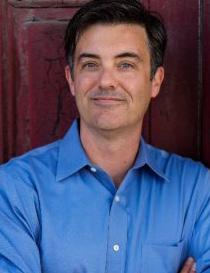
The New York Times quoted Margo Anderson (emerita History) in an article marking the death of Barbara Bryant, the first woman to lead the U.S. Census Bureau. She was also quoted in a Washington Post piece about the Bureau’s first chief of color and his ambitions to better count minorities in the U.S.
Is time an illusion? Not quite - it just proceeds in the direction of entropy, John Friedman (emeritus Physics) said in an Inverse article examining the time traveling elements of the movie “Edge of Tomorrow” (2014).
“The Young and the Restless” just celebrated its 50th anniversary and has been ranked as the No. 1 daytime drama for 35 consecutive years. The Associated Press spoke with Elana Levine (English) about the show’s cultural impact for an article reprinted across the country.
Anne Basting (Center for 21st Century Studies; English) was featured in The New York Times’ First Person podcast. Her interview with host Lulu GarciaNavarro focused on changing the conversation on dementia.
“Cocaine Bear” was a bad movie, but it was fun to watch. Jocelyn Szczepaniak-Gillece (Film Studies), who teaches a class on “Trash Cinema,” explained the film’s appeal on Wisconsin Public Radio.
13 College of Letters & Science • UW–Milwaukee •
Alumni Accomplishments
Janice (Freeman) Litza (’91, BS Biological Sciences) was named a “Notable BIPOC Executive” by BizTimes. Litza earned her medical degree from the University of Wisconsin-Madison School of Medicine and Public Health. She is the regional chief medical officer at Ascension Wisconsin and oversees and manages medical staff at Ascension All Saints Hospital in Racine, Ascension St. Francis Hospital in Milwaukee, and the Ascension Franklin campus.
Ramard Wright (‘03, BS Biological Sciences) is an anomaly among veterinarians: He is Black in a profession where less than 2 percent of veterinarians are Black. Wright, who owns Wright’s Brown Deer Animal Hopsital in Brown Deer, Wisconsin, was featured on TMJ4 News
Laura Stack (‘06, BA History) joined the DeWitt LLP Law Firm in the organization’s Milwaukee office. Stack is a family law attorney and will lend her expertise to the firm’s growing family law team. Stack earned her law degree from Marquette University Law School.
Lara Fritts (‘95, MS Urban Studies) was appointed the Director of Economic Development of Frederick County in Maryland. Fritts was previously the CEO of Community Redevelopment, Inc., in Annapolis, Maryland. Fritts has also served as the director of Salt Lake City’s Department of Economic Development in Utah and in other similar positions.
Steve Schuster (‘02, BA Political Science and Journalism, Advertising, and Media Studies) was named the managing editor of The Daily Reporter and the Wisconsin Law Journal. Both publications are based in Milwaukee. Schuster has extensive experience as an editor in the media industry and previously served as a chapter president for Milwaukee for the Society of Professional Journalists.
Laurels and Accolades


Seven UWM undergraduates presented outcomes of their research collaborations to Wisconsin legislators and UW System administrators at the annual Research in the Rotunda event in Madison on March 8. The students (and their mentors) are Alexandra Kaja (Lisa Hager), Lily Pemble (Philip Owens), Alex Nelson (Seok Hyun “Joshua” Gwon), Claire Bolda (Dawn Erb, Physics), Weiling Xia (Xiaoling Ma), Dhivyashree Senthil Murugan (Xiaohua Peng, Chemistry and Biochemistry), and Marina Slawinski (Priya Premnath).
Doctoral student Vijaya Tamla Rai (Sociology) will begin his teaching career at Montana State University, an R1 research institution like UWM, after receiving an offer for a tenure-track position. Rai is a native of Nepal and currently teaches statistical thinking in the Sociology Department.
Doctoral student Matilda Ansah (History) received the Humanities without Walls Career Diversity Fellowship
Bag - Secrets of Animal Sounds: The Music of Frogs and Insects
Science
All animals communicate. How that is done, of course, varies by the creature and the purpose. This presentation focusses on treefrogs and treehoppers, whose sometimes raucous choruses provide an ideal way in which to ask questions and learn about the social and environmental factors that govern their lives.
This edition of Science Bag is presented by Dr. Gerlinde Höbel and Dr. Rafael Rodríguez from the Department of Biological Sciences.
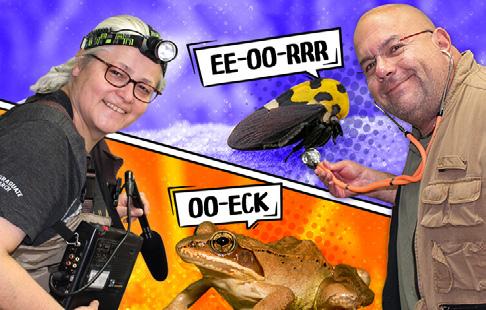
Science Bag is a fun, FREE, family-friendly show that delves into a unique aspect of science.
- Friday, April 14 at 6 PM
- Sunday, April 16 at 3 PM
- Friday, April 28 at 2 PM
For more information about Science Bag visit uwm.edu/science-bag
14 • IN FOCUS • April, 2023
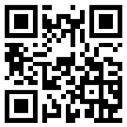
1. Visit uwm414day.org to see our featured giving opportunities and challenges where your gift can be matched! 2. Make a gift to any area you wish to support. 3. Accept our sincerest “thank you” and feel GREAT knowing that you have directly contributed to education and research programs that benefit Wisconsin and beyond. 15 College of Letters & Science • UW–Milwaukee • Celebrate all things Milwaukee April 13-14 in honor of 414 Day! Including UWM and the College of Letters & Science Will you join us for the third annual 414 day of giving? Help us beat last year’s results: $480,000 from more than 1,200 donors. On April 13 or 14, 2023
People in Print
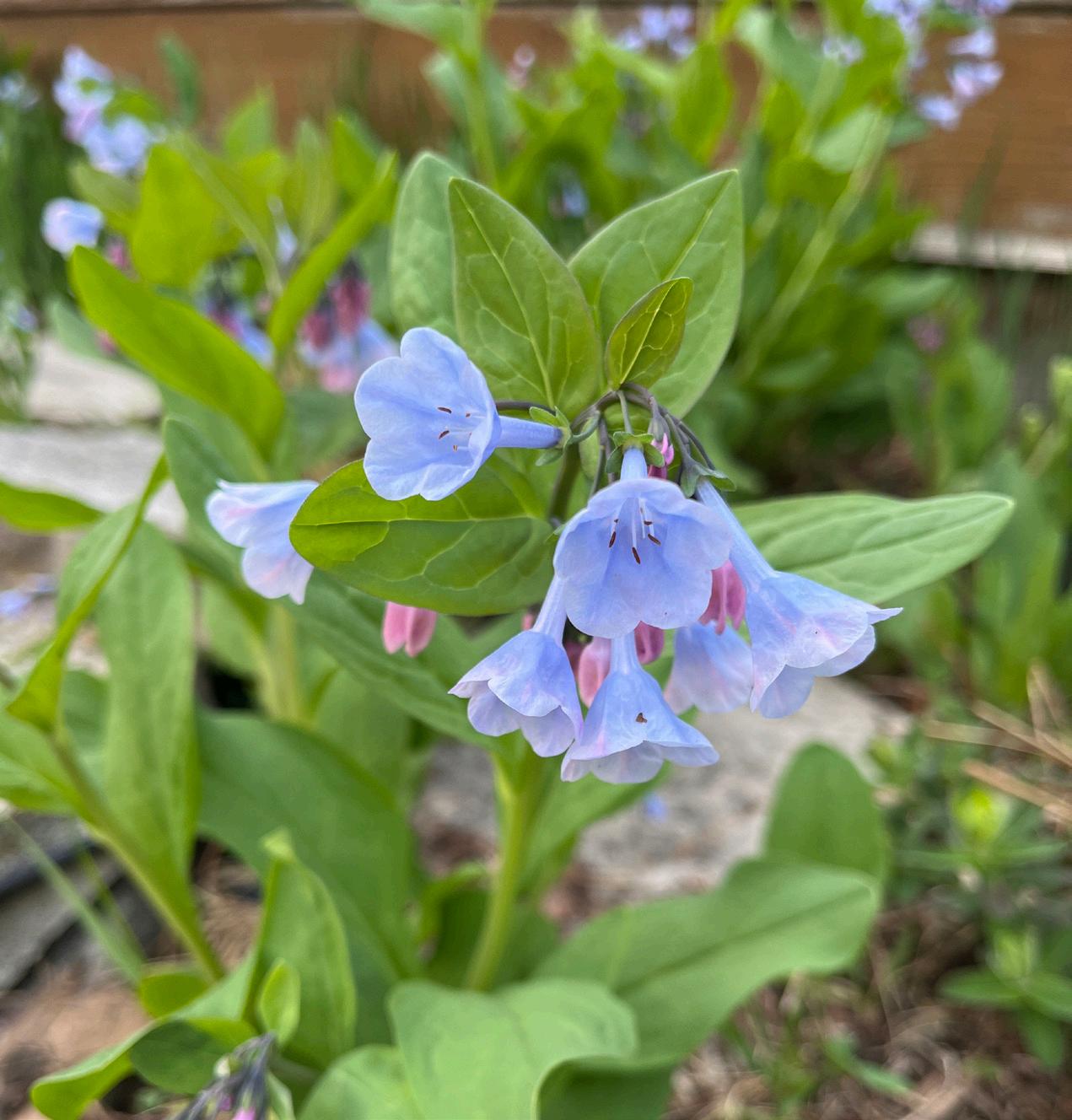
Shale Horowitz (Political Science). 2023. Why Israel Is Judged Differently: Jerusalem’s International Challenges. Middle East Quarterly, 30(2). Online.

Blain E. Neufeld (Philosophy). 2023. Political Activism, Egalitarian Justice, and Public Reason. Journal of Social Philosophy, 1-18.
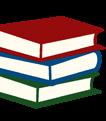












 By Laura Otto, University Relations
By Laura Otto, University Relations

























